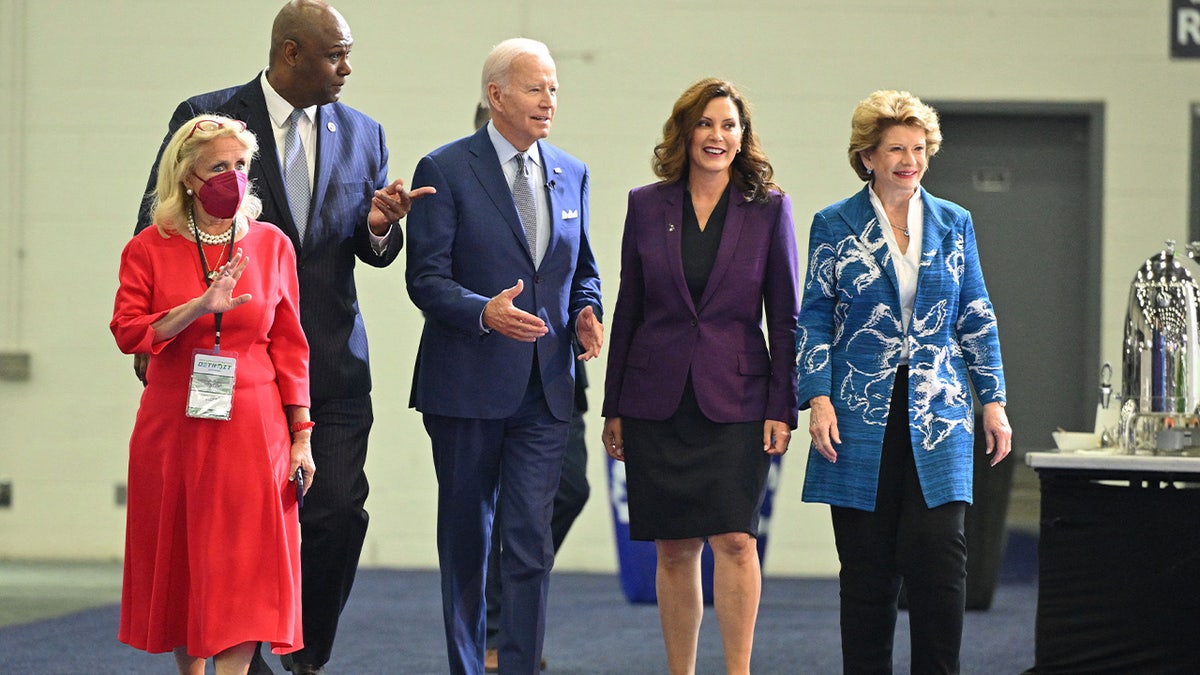Sen. Rand Paul says criticism of Ukraine funding is a ‘growing movement’ in Washington

As the House searches for a new speaker and the Senate works to get Ukraine assistance back into a spending bill come November 17 when the current deal expires, Sen. Rand Paul, R-Ky., says there is a 'growing movement' within the Republican party to cut additional funding altogether.
'We have problems funding Social Security, we have problems funding, Medicare, Medicaid, all the things that have already been promised to our people we have trouble funding, and we just don't have extra money just to be sending to another country,' Paul told Fox News Digital in an interview this week.
The U.S. has sent more than an estimated $100 billion of taxpayer dollars to Ukraine since the war began, according to the White House.
Republicans who are opposed to additional funding the war-torn nation scored a victory last weekend when then-House Speaker McCarthy passed a spending patch without the additional multi-billion dollar Ukraine assistance as requested by President Joe Biden, ultimately averting a government shutdown. The temporary funding patch expires Nov. 17, bringing Congress to another potential showdown in a few weeks.
Paul — prior to Rep. Kevin McCarthy's ouster — said that all eyes will be on what the House speaker does in the next go-around of spending discussions, citing a caveat that may 'dampen' efforts to continue sending funds to Ukraine, which has been gripped by a Russian invasion since last year.
'The Republican Conference in the house has a rule, that if a majority of the Republican Conference is for something or against something, the speaker can't bring it up by rule,' he said.
That unwritten practice is known as the Hastert Rule, which sets the precedent that the speaker will not bring a bill to the floor unless 'the majority of the majority' is in favor of it.
'I think it's a good question for some of the opponents on the House side,' Paul said. 'Will the conference rule hold that will prevent [the speaker] from bringing it up? Because if it does, that ends up being perhaps a deal killer on this as it moves forward.'
Other GOP lawmakers in the upper chamber opposed to more assistance, at least without additional oversight, include Sens. Josh Hawley, R-Mo., Sen. J.D. Vance, R-Ohio, John Kennedy, R-La., Jim Risch, R- Idaho and Roger Wicker, R-Miss.
Aside from being trillions in debt, Paul said the secondary reason is that Ukraine 'is not really a shining example of democracy, they canceled the elections.'
'So, a country that doesn't have elections is hard-pressed to be describing themselves as a paragon of democracy,' he said.
And Republicans aren't the only ones concerned about Ukraine's purported ethical failures. A recent U.S. State Department strategy memo detailing the top priorities for Ukraine — ravaged by war against Russia since last year — shows even the Biden administration has concerns over purported corruption in the Eastern European country but still supports continued aid to the region.
According to the 22-page document, called the Integrated Country Strategy, the 'biggest challenge is winning the war,' but 'Ukraine has a unique opportunity in the current moment to commit to the anti-corruption and judicial reforms needed to realize the aspirations of the Ukrainian people.'
'I think it's obscene to do it [send more aid] without an inspector general in place,' Paul said. 'There's still a healthy amount of corruption in Ukraine.'
Meanwhile, Sen. Minority Leader Mitch McConnell, R-Ky., said Wednesday following the GOP's weekly luncheon that adding more aid is 'still a major priority.'
'I think a majority of the members of both parties still support it,' McConnell said of assistance to Ukraine. 'We need some direction from the [Biden] administration as to how they intend to go forward.'




